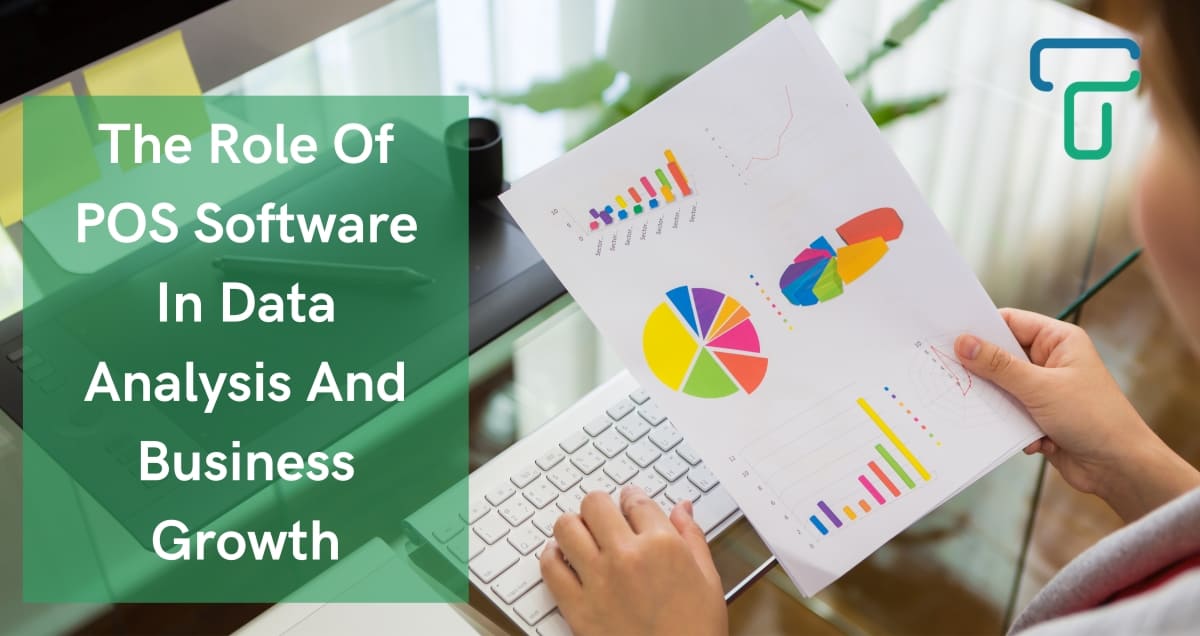The Role Of POS Software In Data Analysis And Business Growth
Point of Sale (POS) software has emerged as a powerful tool that not only simplifies transaction processes but also generates valuable data for businesses. This blog explores the significant role of POS software in data analysis and how it contributes to business growth.
Efficient Data Collection and Organization:
POS software acts as a centralized system that efficiently collects and organizes data related to sales, inventory, customer preferences, and more. By capturing transactional information, such as product details, prices, and customer profiles, businesses can gather valuable insights into consumer behavior and preferences. The software automatically records and categorizes data, removing the necessity for manual data entry and minimizing the risk of human error.
Enhanced Data Analysis:
POS software empowers businesses to perform in-depth analysis once data is collected and organized. The advanced reporting features allow us to extract useful information and valuable insights from large amounts of data. By examining sales trends, customer purchasing patterns, and inventory levels, businesses can identify top-selling products, optimize inventory management, and make data-driven decisions to drive growth.
Personalized Customer Experiences:
With the help of POS software, businesses can now provide personalized experiences to their customers by analyzing their purchase history and preferences. This analysis empowers businesses to offer customers rewards, loyalty points, and discounts. For instance, if a customer frequently buys a specific product, the software can intelligently suggest complementary items that align with their interests. This will help to boost customer satisfaction.
POS Customized Reports:
POS software can generate customized reports, allowing companies to measure key performance indicators (KPIs), monitor employee performance, and identify areas for improvement. Data visualization tools help transform complex data sets into visually appealing graphs and charts, making it easier for business owners and managers to interpret and communicate insights.
Find Areas of Improvement:
Additionally, by tracking customer interactions and feedback, businesses can identify areas where improvements can be made. POS software facilitates the collection of customer data, such as contact information and purchase history, enabling businesses to create targeted marketing campaigns and nurture long-term customer relationships.
Streamlined Inventory Management:
Managing your inventory in an efficient manner is important for any business. POS software streamlines inventory tracking by automatically updating stock levels in real-time. This enables businesses to maintain an optimum inventory level. By analyzing sales patterns and inventory turnover rates, businesses can forecast demand, identify slow-moving items, and adjust procurement strategies accordingly.
POS software integrates with suppliers’ systems, facilitating automated reordering and ensuring seamless supply chain management. By reducing manual intervention and optimizing stock levels, businesses can free up capital, minimize carrying costs, and enhance overall operational efficiency.
Conclusion:
POS software plays a crucial role in data analysis and business growth. It enables efficient data collection and organization, empowers businesses to perform in-depth analysis, and offers personalized customer experiences. Furthermore, it streamlines inventory management and ensures seamless supply chain operations. The advanced reporting features of POS software enable businesses to pull actionable insights from vast amounts of data, leading to strategic advantages. With its ability to offer personalized experiences to customers based on their purchase history, POS software improves customer satisfaction and cultivates long-term loyalty.


